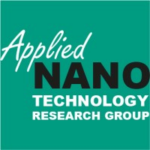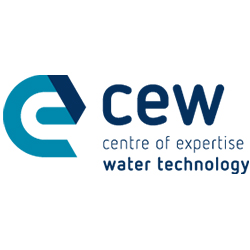Op 20 januari 2022 sprak mr. dr. Bart Wernaart zijn lectorale rede “Building value-based technology together" uit. Aansluitend werd Bart geïnstalleerd als lector Moral Design Strategy binnen Fontys Hogeschool Economie en Communicatie. Op deze website een verslag van alle onderdelen van die dag.
LINK
A short paper on the whats and the hows of learning technology standardization
DOCUMENT

Purpose: This is a position paper describing the elements of an international framework for assistive techhnology provision that could guide the development of policies, systems and service delivery procedures across the world. It describes general requirements, quality criteria and possible approaches that may help to enhance the accessibility of affordable and high quality assistive technology solutions. Materials and methods: The paper is based on the experience of the authors, an analysis of the existing literature and the inputs from many colleagues in the field of assistive technology provision. It includes the results of discussions of an earlier version of the paper during an international conference on the topic in August 2017. Results and conclusion: The paper ends with the recommendation to develop an international standard for assistive technology provision. Such a standard can have a major impact on the accessibility of AT for people with disabilities. The paper outlines some the key elements to be included in a standard.
DOCUMENT

The focus of this project is on improving the resilience of hospitality Small and Medium Enterprises (SMEs) by enabling them to take advantage of digitalization tools and data analytics in particular. Hospitality SMEs play an important role in their local community but are vulnerable to shifts in demand. Due to a lack of resources (time, finance, and sometimes knowledge), they do not have sufficient access to data analytics tools that are typically available to larger organizations. The purpose of this project is therefore to develop a prototype infrastructure or ecosystem showcasing how Dutch hospitality SMEs can develop their data analytic capability in such a way that they increase their resilience to shifts in demand. The one year exploration period will be used to assess the feasibility of such an infrastructure and will address technological aspects (e.g. kind of technological platform), process aspects (e.g. prerequisites for collaboration such as confidentiality and safety of data), knowledge aspects (e.g. what knowledge of data analytics do SMEs need and through what medium), and organizational aspects (what kind of cooperation form is necessary and how should it be financed).Societal issueIn the Netherlands, hospitality SMEs such as hotels play an important role in local communities, providing employment opportunities, supporting financially or otherwise local social activities and sports teams (Panteia, 2023). Nevertheless, due to their high fixed cost / low variable business model, hospitality SMEs are vulnerable to shifts in consumer demand (Kokkinou, Mitas, et al., 2023; Koninklijke Horeca Nederland, 2023). This risk could be partially mitigated by using data analytics, to gain visibility over demand, and make data-driven decisions regarding allocation of marketing resources, pricing, procurement, etc…. However, this requires investments in technology, processes, and training that are oftentimes (financially) inaccessible to these small SMEs.Benefit for societyThe proposed study touches upon several key enabling technologies First, key enabling technology participation and co-creation lies at the center of this proposal. The premise is that regional hospitality SMEs can achieve more by combining their knowledge and resources. The proposed project therefore aims to give diverse stakeholders the means and opportunity to collaborate, learn from each other, and work together on a prototype collaboration. The proposed study thereby also contributes to developing knowledge with and for entrepreneurs and to digitalization of the tourism and hospitality sector.Collaborative partnersHZ University of Applied Sciences, Hotel Hulst, Hotel/Restaurant de Belgische Loodsensociëteit, Hotel Zilt, DM Hotels, Hotel Charley's, Juyo Analytics, Impuls Zeeland.
Size measurement plays an essential role for micro-/nanoparticle characterization and property evaluation. Due to high costs, complex operation or resolution limit, conventional characterization techniques cannot satisfy the growing demand of routine size measurements in various industry sectors and research departments, e.g., pharmaceuticals, nanomaterials and food industry etc. Together with start-up SeeNano and other partners, we will develop a portable compact device to measure particle size based on particle-impact electrochemical sensing technology. The main task in this project is to extend the measurement range for particles with diameters ranging from 20 nm to 20 um and to validate this technology with realistic samples from various application areas. In this project a new electrode chip will be designed and fabricated. It will result in a workable prototype including new UMEs (ultra-micro electrode), showing that particle sizing can be achieved on a compact portable device with full measuring range. Following experimental testing with calibrated particles, a reliable calibration model will be built up for full range measurement. In a further step, samples from partners or potential customers will be tested on the device to evaluate the application feasibility. The results will be validated by high-resolution and mainstream sizing techniques such as scanning electron microscopy (SEM), dynamic light scattering (DLS) and Coulter counter.
Due to societal developments, like the introduction of the ‘civil society’, policy stimulating longer living at home and the separation of housing and care, the housing situation of older citizens is a relevant and pressing issue for housing-, governance- and care organizations. The current situation of living with care already benefits from technological advancement. The wide application of technology especially in care homes brings the emergence of a new source of information that becomes invaluable in order to understand how the smart urban environment affects the health of older people. The goal of this proposal is to develop an approach for designing smart neighborhoods, in order to assist and engage older adults living there. This approach will be applied to a neighborhood in Aalst-Waalre which will be developed into a living lab. The research will involve: (1) Insight into social-spatial factors underlying a smart neighborhood; (2) Identifying governance and organizational context; (3) Identifying needs and preferences of the (future) inhabitant; (4) Matching needs & preferences to potential socio-techno-spatial solutions. A mixed methods approach fusing quantitative and qualitative methods towards understanding the impacts of smart environment will be investigated. After 12 months, employing several concepts of urban computing, such as pattern recognition and predictive modelling , using the focus groups from the different organizations as well as primary end-users, and exploring how physiological data can be embedded in data-driven strategies for the enhancement of active ageing in this neighborhood will result in design solutions and strategies for a more care-friendly neighborhood.
Lectoraat, onderdeel van Saxion

Centre of Expertise, onderdeel van Hogeschool Van Hall Larenstein, NHL Stenden Hogeschool
